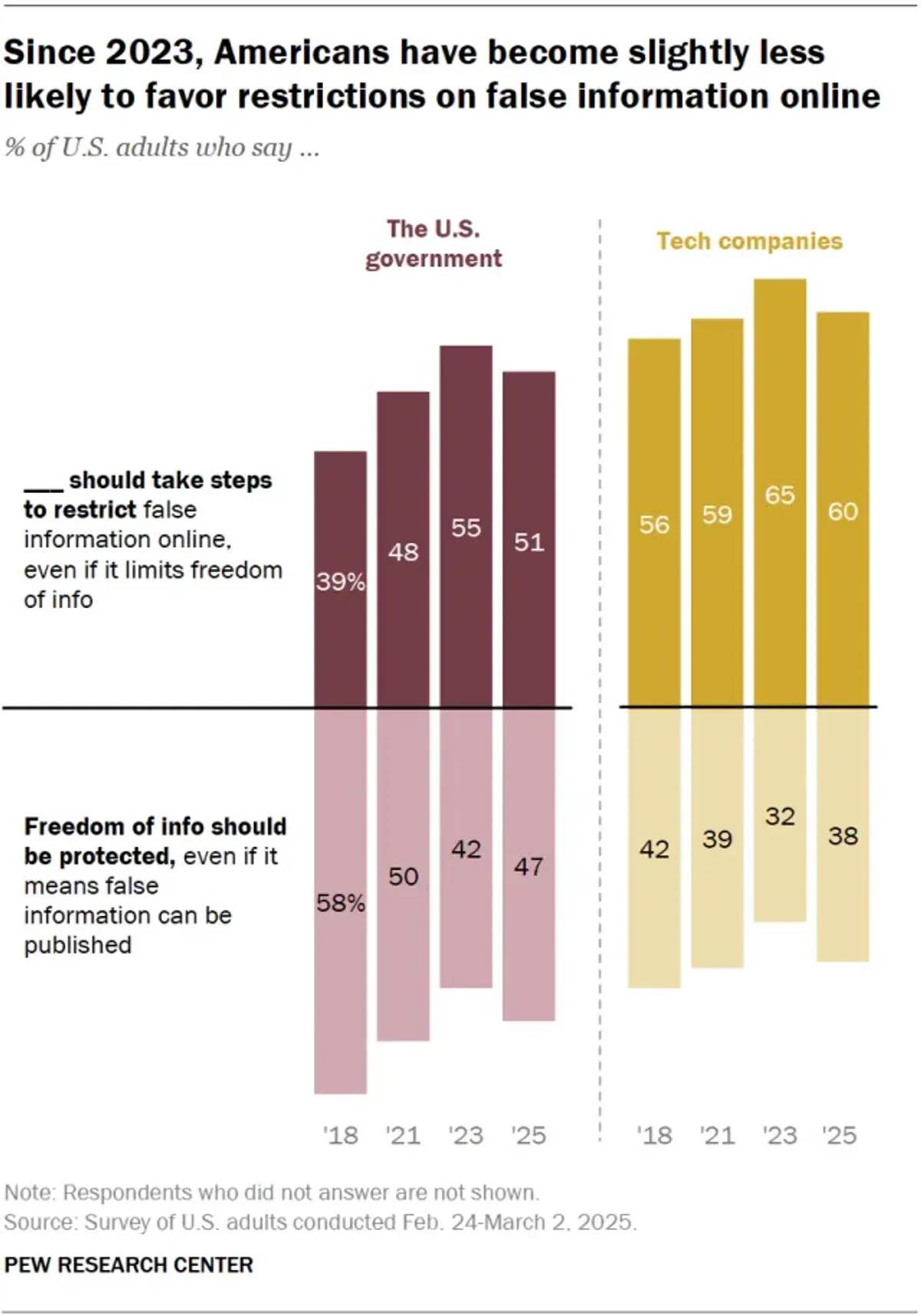A fresh Pew Research Center survey reveals that just 51% of Americans now back government restrictions on false information online, down from 55% in 2023. Support for tech companies playing content cop has also dipped, falling to 60% from 65% two years ago.
The change in attitudes toward violent content is even more dramatic. Public support for government intervention dropped eight percentage points since 2023, with only 52% now favoring restrictions. Tech companies faced an even steeper decline – just 58% of Americans want them policing violent content, compared to 71% two years ago.
Meta Dumps Fact-Checking as Policy Shifts
This shift comes at a crucial moment. Meta recently abandoned its fact-checking program, while former President Trump's January executive order aimed to curtail what he termed "federal censorship." Meanwhile, Congress debates the fate of Section 230, the law shielding social media companies from liability for user-posted content.

The partisan landscape tells an intriguing story. Democratic support for government restrictions on false information has plummeted from 70% to 58% since 2023. Republicans held steady around 43%, narrowing the partisan gap significantly.
Democrats Lead Surprising Retreat from Content Control
Democrats' enthusiasm for content moderation seems to track with who occupies the White House. Their support peaked during Biden's presidency but hit its lowest points under Trump in 2018 and 2025. Republican views remained more consistent, though their backing for restrictions dipped after Biden took office in 2021.
When it comes to tech companies' role, Democrats still strongly favor intervention – 73% want platforms to restrict false information. But that's down from 81% in 2023. Republicans remain split, with 47% supporting tech company restrictions.
Tech Companies Face Dwindling Trust
The most dramatic shift appears in attitudes toward violent content. Democratic support for tech company restrictions plunged from 83% to 65% since 2023. Government intervention faced similar skepticism, with Democratic support falling from 71% to 56%. A surprising 42% of Democrats now say protecting freedom of information matters more than blocking violent content.
Republicans show their own evolving views on violent content. They're evenly divided on government restrictions (48% in favor, 50% against). Support for tech company intervention dropped ten points since 2023, with 51% now backing platform-level restrictions.
These findings suggest Americans are recalibrating their views on the trade-off between content control and free expression. As social media platforms and lawmakers grapple with these issues, they face an increasingly skeptical public – one that seems increasingly willing to accept more controversial content in exchange for fewer restrictions on speech.
Why this matters:
- The "content moderation pendulum" is swinging back toward free speech after years of pushing for more restrictions – and it's not just Republicans leading the charge
- Americans are growing more willing to stomach unsavory content online rather than hand control to tech companies or the government, marking a significant shift in the post-2020 content moderation debate
Read on, my dear:










